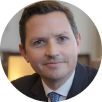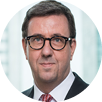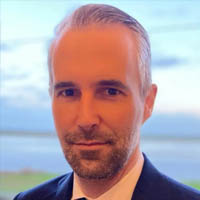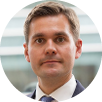From startups to legacy brands, you're making your mark. We're here to help.
-
Innovation Economy
Fueling the success of early-stage startups, venture-backed and high-growth companies.
-
Midsize Businesses
Keep your company growing with custom banking solutions for middle market businesses and specialized industries.
-
Large Corporations
Innovative banking solutions tailored to corporations and specialized industries.
-
Commercial Real Estate
Capitalize on opportunities and prepare for challenges throughout the real estate cycle.
-
Community Impact Banking
When our communities succeed, we all succeed. Local businesses, organizations and community institutions need capital, expertise and connections to thrive.
-
International Banking
Power your business' global growth and operations at every stage.
Key Links
Prepare for future growth with customized loan services, succession planning and capital for business equipment.
-
Asset Based Lending
Enhance your liquidity and gain the flexibility to capitalize on growth opportunities.
-
Equipment Financing
Maximize working capital with flexible equipment and technology financing.
-
Trade & Working Capital
Experience our market-leading supply chain finance solutions that help buyers and suppliers meet their working capital, risk mitigation and cash flow objectives.
-
Syndicated Financing
Leverage customized loan syndication services from a dedicated resource.
-
Commercial Real Estate
Capitalize on opportunities and prepare for challenges throughout the real estate cycle.
-
Employee Stock Ownership Plans
Plan for your business’s future—and your employees’ futures too—with objective advice and financing.
Key Links
Serving the world's largest corporate clients and institutional investors, we support the entire investment cycle with market-leading research, analytics, execution and investor services.
-
Institutional Investors
Putting your long-tenured investment teams on the line to earn the trust of institutional investors.
-
Markets
Direct access to market leading liquidity harnessed through world-class research, tools, data and analytics.
-
Prime Services
Helping hedge funds, asset managers and institutional investors meet the demands of a rapidly evolving market.
-
Global Research
Leveraging cutting-edge technology and innovative tools to bring clients industry-leading analysis and investment advice.
-
Securities Services Solutions
Helping institutional investors, traditional and alternative asset and fund managers, broker dealers and equity issuers meet the demands of changing markets.
Key Links
Providing investment banking solutions, including mergers and acquisitions, capital raising and risk management, for a broad range of corporations, institutions and governments.
-
Center for Carbon Transition
J.P. Morgan’s center of excellence that provides clients the data and firmwide expertise needed to navigate the challenges of transitioning to a low-carbon future.
-
Corporate Finance Advisory
Corporate Finance Advisory (“CFA”) is a global, multi-disciplinary solutions team specializing in structured M&A and capital markets. Learn more.
-
Development Finance Institution
Financing opportunities with anticipated development impact in emerging economies.
-
Sustainable Solutions
Offering ESG-related advisory and coordinating the firm's EMEA coverage of clients in emerging green economy sectors.
-
Mergers and Acquisitions
Bespoke M&A solutions on a global scale.
-
Capital Markets
Holistic coverage across capital markets.
Your partner for commerce, receivables, cross-currency, working capital, blockchain, liquidity and more.
Key Links
A uniquely elevated private banking experience shaped around you.
-
Banking
We have extensive personal and business banking resources that are fine-tuned to your specific needs.
-
Investing
We deliver tailored investing guidance and access to unique investment opportunities from world-class specialists.
-
Lending
We take a strategic approach to lending, working with you to craft the right financing solutions matched to your goals.
-
Planning
No matter where you are in your life, or how complex your needs might be, we’re ready to provide a tailored approach to helping your reach your goals.
Whether you want to invest on your own or work with an advisor to design a personalized investment strategy, we have opportunities for every investor.
-
Invest on your own
Unlimited $0 commission-free online stock, ETF and options trades with access to powerful tools to research, trade and manage your investments.
-
Work with our advisors
When you work with our advisors, you'll get a personalized financial strategy and investment portfolio built around your unique goals-backed by our industry-leading expertise.
-
Expertise for Substantial Wealth
Our Wealth Advisors & Wealth Partners leverage their experience and robust firm resources to deliver highly-personalized, comprehensive solutions across Banking, Lending, Investing, and Wealth Planning.
For Companies and Institutions
-
Commercial Banking
From startups to legacy brands, you're making your mark. We're here to help.
-
Institutional Investing
Serving the world's largest corporate clients and institutional investors, we support the entire investment cycle with market-leading research, analytics, execution and investor services.
-
Payments
Your partner for commerce, receivables, cross-currency, working capital, blockchain, liquidity and more.
-
Credit & Financing
Prepare for future growth with customized loan services, succession planning and capital for business equipment.
-
Investment Banking
Providing investment banking solutions, including mergers and acquisitions, capital raising and risk management, for a broad range of corporations, institutions and governments.
For Individuals
-
Private Bank
A uniquely elevated private banking experience shaped around you.
-
Wealth Management
Whether you want to invest on you own or work with an advisor to design a personalized investment strategy, we have opportunities for every investor.
Explore a variety of insights.
Key Links
Insights by Topic
Explore a variety of insights organized by different topics.
Key Links
Insights by Type
Explore a variety of insights organized by different types of content and media.
Key Links
We aim to be the most respected financial services firm in the world, serving corporations and individuals in more than 100 countries.
Key Links
- Insights
- Outlook
- Business Leaders Outlook
- 2024 Germany Business Leaders Outlook: Shooting for growth

A majority of business leaders across Germany are optimistic about the national economy, maintaining similar levels over the past four years. According to our Business Leaders Outlook survey, 59% of executives have a positive outlook about the German economy—a 5-point uptick from last year—while aware of a challenging economic landscape ahead.
As it gets closer to home, 70% of leaders are optimistic about their industry’s performance this year, and 81% are optimistic about their company’s performance in 2024, an improvement on last year’s numbers and more consistent with responses seen in 2021 and 2022.
Overwhelmingly, German businesses anticipate their companies will grow. Seventy-eight percent expect revenue and sales will beat their 2023 numbers, and 75% said profits will increase over the previous year. Inflation continues to put pressure on companies; 73% said their costs are rising, a 4-point increase compared to one year ago.
As policymakers try to curb inflation, German businesses are feeling the effects. Rising interest rates and uncertain economic conditions are among the most common business concerns.
As artificial intelligence and machine learning have rapidly entered the mainstream, German leaders are embracing the new technology—with a level of care. A commanding 82% of companies said they are using or considering AI tools, and 28% of leaders identified adoption of AI/machine learning as one of their business’s primary challenges.
Contributors

Stefan Povaly
Head of Germany, Senior Country Officer

Bernhard Brinker
Head of Commercial Banking, DACH Region

Michele Iozzolino
Head of Investment Banking, Germany

Thorsten Zahn
Head of Equity Capital Markets, DACH Region

Alexander Voigt
Head of Investment Grade Finance, DACH Region and Infrastructure Debt Capital Markets Financing Lead, Europe

Viktoria Boecker
Head of Commercial Banking Treasury Management, DACH Region

Caroline Pötsch-Hennig
Head of Private Banking, Germany
About the survey
In its fourth year, the annual Germany Business Leaders Outlook survey is a snapshot capturing the concerns and expectations of senior business leaders at midsize companies with annual revenues generally ranging from €20 million and €2 billion.
This year, 251 respondents completed the online survey between November 16 and December 13, 2023. Results are within statistical parameters for validity; the error rate is plus or minus 6.0% at the 95% confidence interval.
Read our other 2024 Business Leaders Outlook Reports.
JPMorgan Chase Bank, N.A. Member FDIC. Visit jpmorgan.com/commercial-banking/legal-disclaimer for disclosures and disclaimers related to this content.
Related insights

Outlook
July Jobs report highlights US job growth has slowed significantly; markets react negatively
Aug 04, 2025
Job growth slowed in July with only 73,000 new jobs added and earlier months revised sharply lower, showing the labor market has weakened.

Outlook
July 2025 Fed meeting: Rates hold steady once again, potentially setting up fall intrigue
Jul 31, 2025
The Federal Reserve held rates steady once again in July, but the decision wasn’t unanimous. What could that mean for economic policy going forward?

Outlook
H1 2025 Innovation Economy Update
Jul 29, 2025
AI investment drives record funding amid the decade’s lowest deal counts. Our update examines these market contradictions and the exit environment.

Outlook
Biopharma and medtech investments navigate Q2 challenges
Jul 28, 2025
Our Biopharma and Medtech Licensing and Venture Reports explore upfront cash, mergers, acquisitions and other trends seen in the second quarter of 2025.

Outlook
June 2025 CPI report: Tariffs are having an impact on consumer prices
Jul 16, 2025
The recent Consumer Price Index (CPI) report shows how tariffs are reshaping consumer prices, particularly in sectors reliant on imports. Read more here.

Outlook
Macro and markets midyear outlook: 5 key considerations
Jul 10, 2025
Learn from Ginger Chambless, head of research for Commercial Banking, how policy uncertainty and Fed positioning are shaping business decisions in the second half of 2025.

Outlook
2025 mid-year outlooks and forecasts
Jul 03, 2025
Dive into in-depth mid-year outlooks and forecasts from our analysts and strategists.

Outlook
Jul 03, 2025
Investors are skittish. Lofty expectations at the start of the year have collided with a far rougher reality. However, there’s opportunity in uncertainty — if you know where to look.
You're now leaving J.P. Morgan
J.P. Morgan’s website and/or mobile terms, privacy and security policies don’t apply to the site or app you're about to visit. Please review its terms, privacy and security policies to see how they apply to you. J.P. Morgan isn’t responsible for (and doesn’t provide) any products, services or content at this third-party site or app, except for products and services that explicitly carry the J.P. Morgan name.